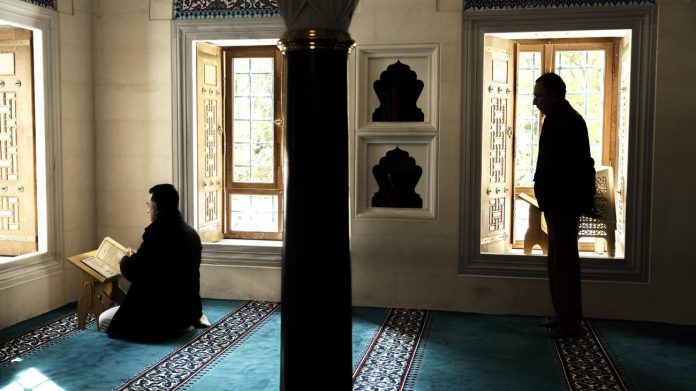Contents page 1 — The desire for a germ-free Islam page 2 — secularity is not neutral To a page
2006 reading, initiated by the then Minister of the interior Wolfgang Schäuble, the German Islam conference. The Federal government and German Muslims to come into the conversation. For the upcoming conference, under Horst Seehofer, prominent figures such as Seyran Ateş, Ahmad Mansour and Necla Kelek have closed together and the Initiative established a Secular Islam (the founding text appeared in the TIME no 48/2018). The political scientist Shirin Amir-Moazami says: By the Initiative of do-your-own Islam version of the scale for the solution of social conflicts, it creates a problematic idea of good and evil Muslims.
integration policy has gained, paradoxically, precisely in importance, as Muslim women, and Muslims are an integral part of German society. The former Minister of the interior Wolfgang Schäuble said Muslims in 2006, “German Muslims” should be. It is the founding moment of the German Islam conference (DIK). Schäuble’s claim sounds downright rebellious in comparison to his amtsnach conclude, to exclude the Islam symbol. For Muslims who have grown up but it appeared odd to be hospitable in their own country will welcome.
Shirin Amir-Moazami is Professor at the Free University of Berlin. She teaches and conducts research on religion policies in Europe, secularism, political theory, gender issues and Islamic movements in Europe. © Martin Funck
This revealed the DIK the contradictions of a religious minority that is tailored integration policies: Muslims and Muslim dialogue partners should be at eye height is considered to be at the same time, but as an integration problem. You are to profess the standards and values of hard-won and deeply European liberties, in the next breath, however, as deviant, in need of reform, but at least as exceptionally marked. Especially when Integration is linked to elastic concepts such as freedom, democracy, or secularity, your aim extremely unsteady.
the competition for the favor of the state
The DIK has no Decision-making authority about what Islam can hope the version on the favor of the state. However, the DIK simulated recognition, for example, claimed the establishment of chairs of Islamic theology, or by you has driven the Islamic welfare. Because it is in the integration of business resources and the power of Interpretation, gap-model “state, invites Muslims to the table of the Republic” within the Islamic actors will be strengthened. The DIK was a kind of Dompteurin the competition of the represented Muslims and Muslim women for the favor of the state.
The newly established Initiative of Secular Islam takes this contest of Interpretation. Your criticism of Islam is justified, misogyny, violence or crude classifications in believers and non-believers is important and right. In the founding text, you will be brought to a simple formula: Secular Islam is a Religion minus politics, minus the piety.
Such votes will encounter want to be on public welfare. You tell the success story of European secularization wood-cut-like more: the Reformation, the enlightenment, domesticated Christianity. The boundaries between Religion and politics are in this country, fragile and controversial. Public law has given to the Christian churches, numerous privileges that they extend far into the public and political sphere, of the Church of control over denominational educational institutions to broadcasting in the public-service broadcasters. These rights of the Islamic religion can communities easily refuse, if in the next breath equality is praised? Or, the Christian character of the secular order is on the bench? Should be churches in the long term to a private club? Under which point of view who determines when a Religion is only Religion when it becomes political? And where exactly is piety begins and where it exceeds sensitivities secular? The Head Cloth? When prayer in public spaces, at the hands of giving Refuse?




